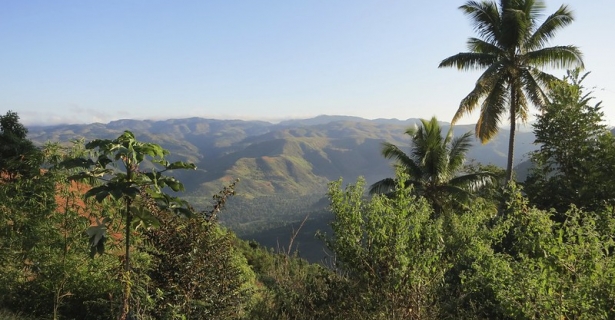As I begin my final week of work at the Institute for Justice and Democracy in Haiti (IJDH), I am extremely grateful for the experiences I have had this summer. As a remote intern working at this non-profit human rights organization, I have been able to gain insights into the joys and challenges that come along with this field of work. In my last few weeks, I have been reflecting on the way Haiti is portrayed by Western media and the mental health toll that human rights work can take on advocates.
One of my main tasks as a summer intern has been to put together the daily news briefing to keep the IJDH staff up to date with the latest developments in Haiti. My work on these briefings has meant many hours spent combing through news sources, and it has given me time to reflect on how Haiti is represented by American and international media outlets. It is common journalistic practice to refer to Haiti as “the poorest country in the Western Hemisphere” when reporting on a story. This phrase is meant to emphasize the scale of the socio-economic problems in Haiti. However, few articles in Western media sources take the time to explain how Haiti became the poorest; how colonialism and foreign exploitation by Europeans destroyed the world’s first independent Black nation and formed the foundations for its modern problems. As an organization, IJDH makes a point to acknowledge the historical origins of Haiti’s suffering, while emphasizing that improving human rights conditions is realistic and necessary.
In my conversations with staff at IJDH, I have noticed the importance of discussing the mental health toll of human rights work. In their day-to-day work, the attorneys and advocates at IJDH are constantly being bombarded with a stream of distressing news updates from Haiti.
While being informed on developments in the country is essential to this work, never being able to take a break from the news brings its own challenges. Much of IJDH’s work does not produce short-term results. Instead, there is a great deal of patience required. Building grassroots support for advocacy initiatives, communicating with people in power, and bringing cases to court for litigation all take time. The IJDH staff’s collaborative spirit, optimistic attitude, and grit to do this difficult work have made an impression on all the interns.
While I am sad that my internship is coming to an end, I feel confident that the improvements to my communication, networking, and professional skills will help me in my future work. I know that I will make an effort to remain in touch with the incredible people I have met at IJDH. As I enter my senior year at Tufts, I am looking forward to what the future brings!

